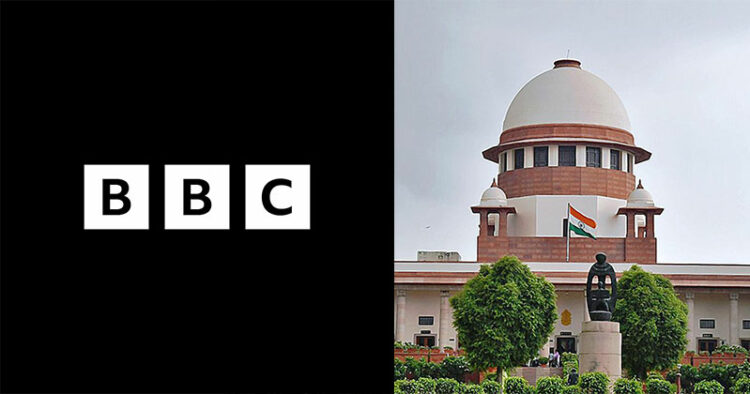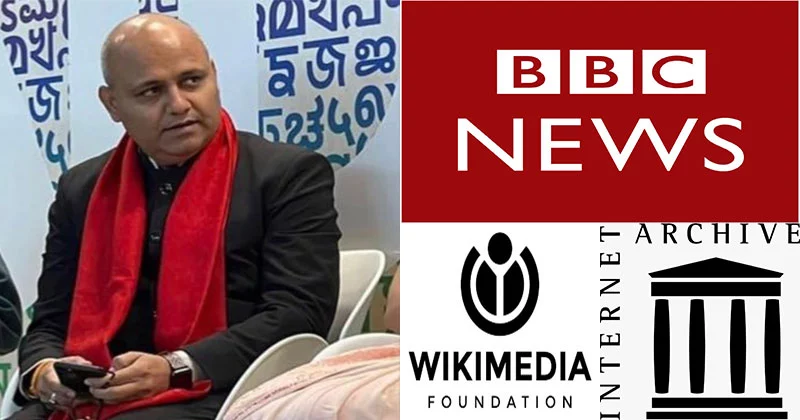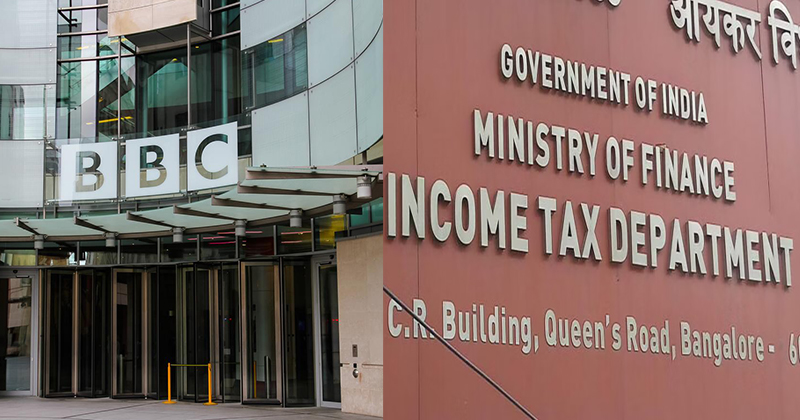The Supreme Court on February 3, in the matter of N Ram and Ors. versus Union of India and Ors., was hearing an appeal filed by Trinamool Congress MP Mahua Moitra, veteran journalist N Ram, advocate ML Sharma and lawyer-activist Prashant Bhushan.
The Supreme Court issued notice on the Centre and others, and directed the Central Government to produce original records of the decision to block the BBC documentary, ‘India: The Modi Question’ based on the 2002 Gujarat riots. The bench was presided over by Justices Sanjiv Khanna and MM Sundresh.
Senior advocate Chander Uday Singh was representing N Ram, Mahua Moitra and Prashant Bhushan. Their petition seeks to restrain the Central Government from blocking the BBC documentary and to quash all orders which directly and indirectly obstruct the online access to it. The petition has also made Twitter Communications India Private Ltd and Google India parties, and sought a direction for the restoration of the tweets of the petitioners.
ML Sharma had filed a separate petition of his own and it has now been associated with similar pleas challenging the government’s decision to ban the documentary. His petition argues that the citizens have the right to view news, facts and reports on the 2002 Gujarat riots and the Centre’s decision has invaded on citizens’ Right to Information guaranteed under Article 19(1)(a) of the Constitution.
CU Singh contended that the Centre had invoked emergency powers under the Information Technology Rules, 2021 to ban the documentary. When questioned by Justice Khanna if he could not go to the High Court first, he said that on the directive of Centre, the Supreme Court had moved to itself the petitions pending in the High Court. These petitions were challenging the IT Rules.
The High Courts had been disallowed by the Supreme Court from hearing those matters. The Bench then asked if the ban order was issued under the same rules, to which CU Singh assented. He highlighted that the Bombay and Madras High Courts have already stayed certain provisions of the IT Rules.
Justice Khanna refused CU Singh’s prayer for two limited interim reliefs at the present stage. The senior advocate then argued that that the IT Rules require the publication of the emergency blocking orders within 48 hours and that one of the interim reliefs that he was seeking was a direction to the Centre to present all the original records. The bench then directed the Centre to produce the original records on the subsequent date of hearing.
The Supreme Court asked the Centre to file its response in the case by the next hearing, which will be in April. “We are issuing notices. Counter affidavit be filed within three weeks. Rejoinder within two weeks after that”, added the bench.
The first episode of the BBC’s two-part documentary, titled India: The Modi Question, alleges that a team sent by the British government had found that Modi, who was the chief minister of Gujarat when the riots took place, was “directly responsible for a climate of impunity” that led to the violence against Muslims. The second part revolved around Modi’s record as prime minister.
The foreign ministry had described the documentary as “a propaganda piece designed to push a particular discredited narrative”.




















Comments